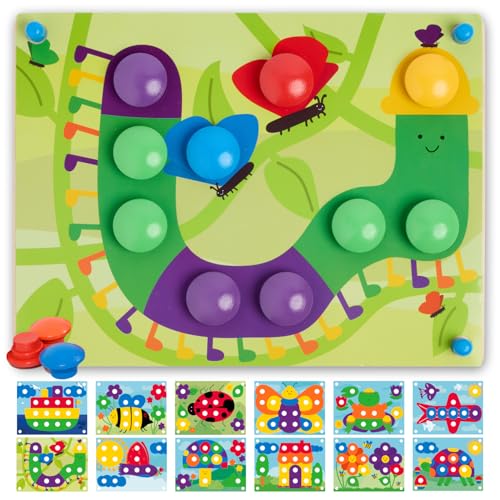To help your child confidently join new groups, encourage their independence by letting them make small social decisions and practice simple conversation starters at home. Teach them to recognize non-verbal cues like gestures and facial expressions to understand social signals better. Offer reassurance when they feel nervous, celebrate little successes, and support their efforts with patience. With consistent effort and encouragement, your child can develop the skills and confidence needed to engage comfortably in new social settings—learn more to support their journey.
Key Takeaways
- Practice simple conversation starters and social skills through role-playing to build confidence.
- Use visual cues and non-verbal communication to help children interpret social situations effectively.
- Encourage independence by allowing children to make choices and participate in planning social activities.
- Provide reassurance by normalizing nerves and celebrating small social successes to boost confidence.
- Offer ongoing support, patience, and encouragement to help children gain social competence and join groups confidently.

Starting a new group can be intimidating for kids, but with the right support, they can join confidently. When your child steps into unfamiliar social settings, it’s natural for them to feel hesitant or unsure. That’s why helping them build social skills is essential. You can encourage your child to practice simple conversation starters, like greeting others or asking questions about shared interests. Role-playing these situations at home helps them become more comfortable, so they’re prepared when they’re truly in the moment. As they develop these skills, they learn how to introduce themselves, maintain eye contact, and listen actively — all vital elements for making connections. Building social skills isn’t just about talking; it’s about understanding social cues, recognizing emotions, and responding appropriately. The more your child practices, the more confident they’ll feel in steering new groups. Additionally, understanding the importance of visual cues can help children better interpret social interactions and respond more effectively. Fostering independence is equally important. Kids who feel capable of managing small social tasks tend to approach new groups with less anxiety. Encourage your child to take responsibility for small decisions, like choosing what to wear or what to bring to the activity. Giving them opportunities to make choices helps boost their confidence and sense of control. When they’re involved in planning or preparing for joining a new group, they start to see themselves as active participants rather than passive observers. This sense of independence translates into a more positive attitude toward social interactions, making it easier for them to engage with others. Supporting your child through this process also involves offering reassurance. Let them know it’s okay to feel nervous and that everyone experiences some level of discomfort when trying something new. Share stories of your own past challenges and how you overcame them, helping your child see that persistence pays off. Celebrate small victories, like saying hello to a new peer or asking a question, to reinforce their progress. As they gain more experience, they’ll realize that they don’t need to be perfect — they just need to be themselves. Over time, these efforts help your child develop resilience and a positive outlook toward social situations. With patience, encouragement, and consistent support, your child will learn how to join new groups with confidence, building lasting friendships and social competence along the way.

200 Kids Conversation Cards – Get Children to Enjoy Talking & Listening – Great for Road Trip & Family Dinners – A Way for Kids to Express Themselves
DO YOU EVER struggle to start a conversation with your child? Or keep it going? Parenting children can…
As an affiliate, we earn on qualifying purchases.
As an affiliate, we earn on qualifying purchases.
Frequently Asked Questions
How Can Parents Support Shy Children During Group Introductions?
To support your shy child during group introductions, focus on building trust by calmly explaining what to expect and practicing introductions at home. Encourage independence by letting them take small steps, like greeting one new person first. Stay positive and patient, offering reassurance without pressuring. Your support helps them feel secure, making it easier to join new groups confidently and develop social skills naturally.
What Are Signs a Child Feels Uncomfortable in a New Group?
You notice your child’s shoulders slumping like a wilted flower, their eyes darting away from others. Signs of withdrawal and avoidance behaviors, such as avoiding eye contact, shrinking into themselves, or standing apart, indicate discomfort. They might cling to familiar objects or hesitate to speak. These subtle cues reveal that your child feels uneasy in the new group, and addressing these signs can help them gradually find their confidence.
How Do Peer Dynamics Affect a Child’s Confidence in New Groups?
Peer influence and social acceptance greatly impact your child’s confidence in new groups. When peers welcome them and include them in activities, your child feels more secure and enthusiastic to participate. Conversely, if they sense rejection or exclusion, their confidence drops. You can support your child by encouraging positive peer interactions, helping them develop social skills, and reminding them that their worth isn’t defined by peer approval, fostering resilience and confidence.
What Activities Encourage Kids to Bond Quickly in New Settings?
You can help kids bond quickly in new settings by encouraging icebreaker games that make everyone feel comfortable and engaged. Also, involve them in collaborative projects where they work together toward a common goal. These activities break down social barriers, promote teamwork, and help kids build trust and friendships faster. By creating fun, inclusive experiences, you give children the confidence to connect with peers naturally.
How Can Teachers Help Hesitant Students Integrate Into New Teams?
Think of a hesitant student as a seed needing gentle nurturing. You can help them grow by organizing team building activities that foster trust and connection. Offer leadership opportunities to boost their confidence and encourage participation. By creating a safe space and guiding them through small steps, you help them feel valued. Your support transforms their initial hesitation into a blossoming sense of belonging within the new team.

Learning Resources Pretend & Play Doctor Set Blue – Medical Kit for Kids, Role Play, Toddler Toys, Social Skills, Language Skills, Fine Motor, Birthday Gift for Boys and Girls
BUILDS SOCIAL CONFIDENCE – Helps kids ages 3+ ease anxiety around doctor visits through imaginative role play that…
As an affiliate, we earn on qualifying purchases.
As an affiliate, we earn on qualifying purchases.
Conclusion
Remember, your support makes a difference. When you help kids feel prepared and confident, they’re more likely to embrace new groups. Did you know that children who feel included are 50% more likely to succeed socially and academically? By encouraging them and celebrating their efforts, you’re setting them up for lifelong confidence. Keep believing in their potential—you’re helping shape resilient, brave kids who can face new challenges with a smile.

Who What Why Conversation Cards for Kids – Learning Game for Social Skills, Emotional Intelligence & Critical Thinking – Speech Therapy Resources, Sequencing Game & Articulation Materials, Ages 4+
DEVELOP EMOTIONAL & SOCIAL INTELLIGENCE – Who What Why conversation cards for kids use friendly illustrations of real-life…
As an affiliate, we earn on qualifying purchases.
As an affiliate, we earn on qualifying purchases.

Nene Toys Wooden Color Matching Puzzle for Toddlers 2+ Years – Montessori Pegboard Button Game with Wooden Nails & Cards – Educational Toy for 2 3 Year Old Boys Girls – Fine Motor Skill Learning
🟣 COLOR MATCHING FUN FOR EARLY LEARNING: This wooden puzzle helps toddlers match colors while building focus and…
As an affiliate, we earn on qualifying purchases.
As an affiliate, we earn on qualifying purchases.









